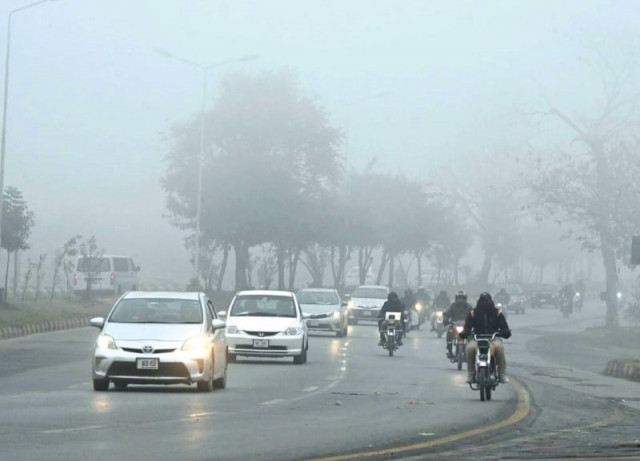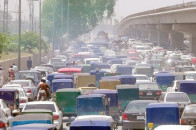Anti-smog efforts stumble
Only half of brick kilns in Rawalpindi embrace eco-friendly zigzag technology

The Rawalpindi Anti-Smog Squad’s failure to curb smog and their inability to enforce eco-friendly zigzag technology in 189 brick kilns has exacerbated pollution levels in the twin cities.
Currently, the air quality index of Islamabad and Rawalpindi has surged to dangerous levels, indicating an alarming trend of escalating air pollution. Islamabad's air quality index has soared to 221, with Rawalpindi registering an air quality index of 202. Additionally, Murree, Chakwal, Attock, and Jhelum have reported air quality indexes of 160, 170, 172, and 171 respectively.
The rising pollution has resulted in a thick fog covering the streets of Rawalpindi and Islamabad, extending into neighbourhoods and impacting visibility from 6 am to 10 am. Diminished sunlight until 11 am, combined with dry conditions, has added to the challenges.
With each passing day, air pollution levels continue to surge in Rawalpindi and Islamabad. Despite the mandate for environment-friendly technology in all kilns, barely 50 per cent have complied in the twin cities, with some kiln operators removing the installed zigzag technology due to increased operational costs.
Read Heavy fog disrupts life in twin cities
Brick Kilns Association Secretary General Raheel Chaudhary advocated for kiln owners to have the autonomy to address smoke emissions instead of obligatory zigzag technology, fines, and penalties.
While the installation of zigzag technology incurs significant expenses, amounting to Rs2.3 million, its efficacy remains questionable. In this regard, an anti-smog squad spokesperson maintained a stance of zero tolerance, stating that non-compliant kilns would face demolition.
Furthermore, the prevalent air pollution, fog, and dry cold have also contributed to respiratory ailments, including coughs, colds, sore eyes, dry lips, fevers, and skin rashes, affecting the residents of the twin cities.
Meanwhile, the unusual foggy conditions have been attributed by weather experts to the lack of rain during this Winter season. Persistent smog due to the insignificant rain during this winter season has caused diseases among the citizens, especially those with allergy issues.
Read Thick fog heightens risk of diseases
According to health experts, those who suffer the most from seasonal diseases are children and aged citizens. Medics have suggested increasing the intake of diets rich in essential minerals and vitamins. Naheed Raza, a mother of three children who daily travels from Rawalpindi to Islamabad to attend her office, said: “Dense foggy conditions with reduced visibility is unusual for me while living in the capital for the last many years. Even I could see the visible fog after 11am.”
She says my children have suffered from prolonged sickness including influenza, cough and high fever three times during the last two months. Doctors believe that viruses mutate into dangerous variants and there is a need to boost the immunity of children by giving them organic food and using green tea with honey and ginger.
In response to the health concerns, parents are calling for an extension of winter vacations, which have already ended in some educational institutions.
With additional input from APP
Published in The Express Tribune, January 5th, 2024.



















COMMENTS
Comments are moderated and generally will be posted if they are on-topic and not abusive.
For more information, please see our Comments FAQ